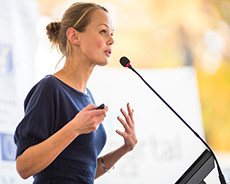WELSH PAEDIATRIC SURVEILLANCE UNIT
UNED ORUCHWYLIAETH BEDIATRIG CYMRU
The Welsh Paediatric Surveillance Unit (WPSU) has three aims:
- enable research into childhood conditions that are more common than would be appropriate for inclusion in UK studies but not frequent enough to allow a single unit to obtain sufficient information to complete a study in a reasonable period of time
- encourage paediatricians to participate in small research projects which have particular relevance to local practice
- increase awareness of the disorders being studied and share in new developments and management
What does WPSU do?
The Welsh paediatric surveillance unit looks at conditions in children in Wales, which are considered too common for a UK study or too uncommon for a local hospital to perform. The WPSU uses similar methodology to the orange card system of the British Paediatric Surveillance Unit (BPSU) with whom we have a close relationship. We discuss all our new projects with the BPSU to ensure that there is no overlap. Some studies have been suspended (subdural haemorrhages, acute pancreatitis) whilst a UK study was performed.
How does it work?
Monthly green cards listing the conditions currently being studied are distributed by post or by email to consultant paediatricians and senior doctors working in Wales (and border hospitals) and covering an approximate child population of 518,800. A small box is ticked if one of the conditions has been encountered in the preceding month. Where a doctor has encountered one or more of our study conditions the number of patients is entered into the appropriate box, and the patients details are recorded separately as a reminder for the doctor. If no cases are encountered a simple confirmation that no cases have been seen in the preceding month is all that is required. The green card or email card is then returned to the Surveillance Office with Cardiff and Vale UHB at the University Hospital of Wales in Cardiff.
A unique number is allocated for each positive return by the office. These notifications are sent to the relevant researcher who then sends out a questionnaire to the reporting doctor. The unique number later helps determine if there has been any duplicate reporting when researchers are sent a list of these notifications and asked to indicate any valid cases, duplicates or errors.
Mailings can be extended to include other consultants in Wales, particularly if older children may be affected. This has been very successful in the early days of the WPSU; for example in studies involving acute and chronic renal failure and inflammatory bowel disease. Paediatricians along the border of England have also been very helpful where some Welsh children have been treated outside Wales. Lately physiotherapists, safeguarding leads and epilepsy nurse specialists throughout Wales have been very helpful with the congenital brachial plexus palsy study, the non accidental head injury study, and in the deaths in epilepsy and the child death review studies. Members now include a number of associate specialists and staff grade doctors who see different patient lists to the consultants.
It is important that the system encourages and supports all doctors involved in the projects, feeding back as much information to individual doctors as possible and thereby increasing the awareness of the studies. The system is there for everyone to use and we hope that paediatricians in training will also see this system as an opportunity to help with research and audit projects. They may initiate studies under supervision.

